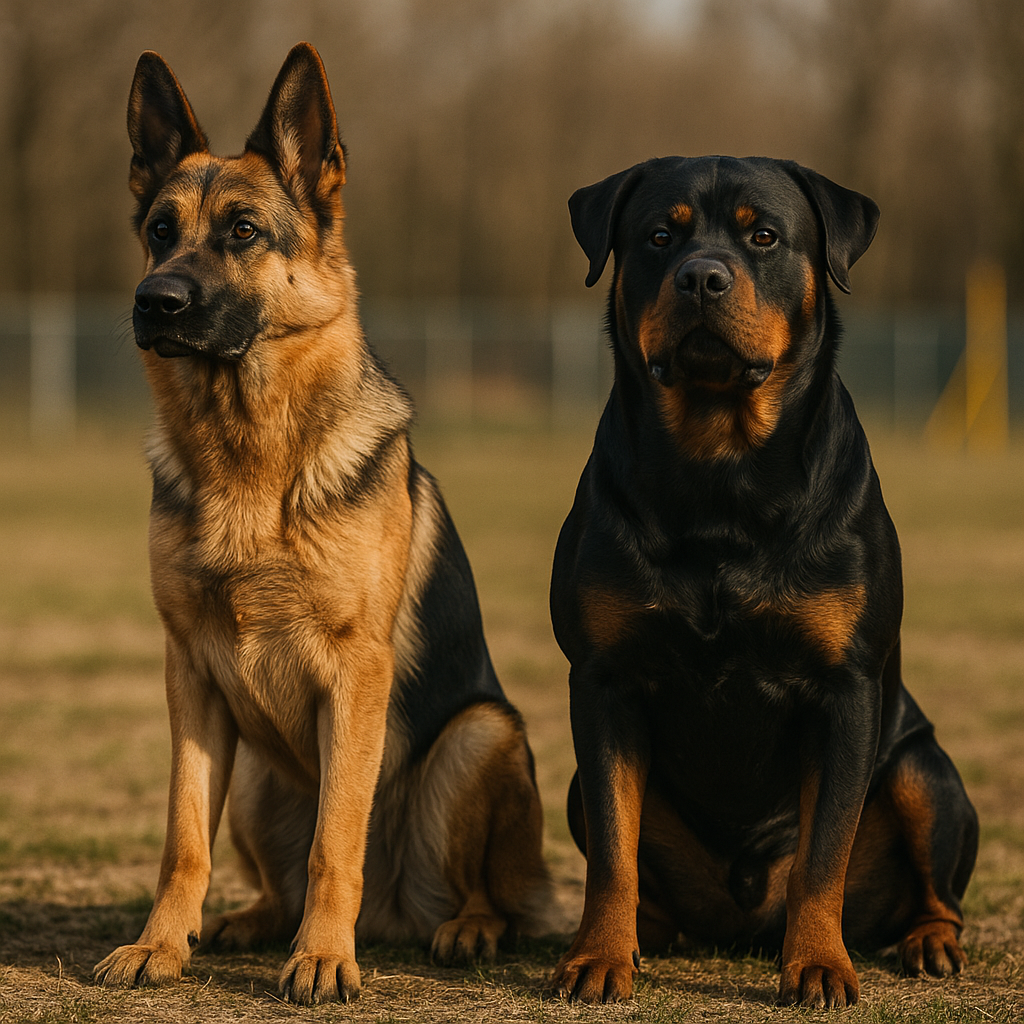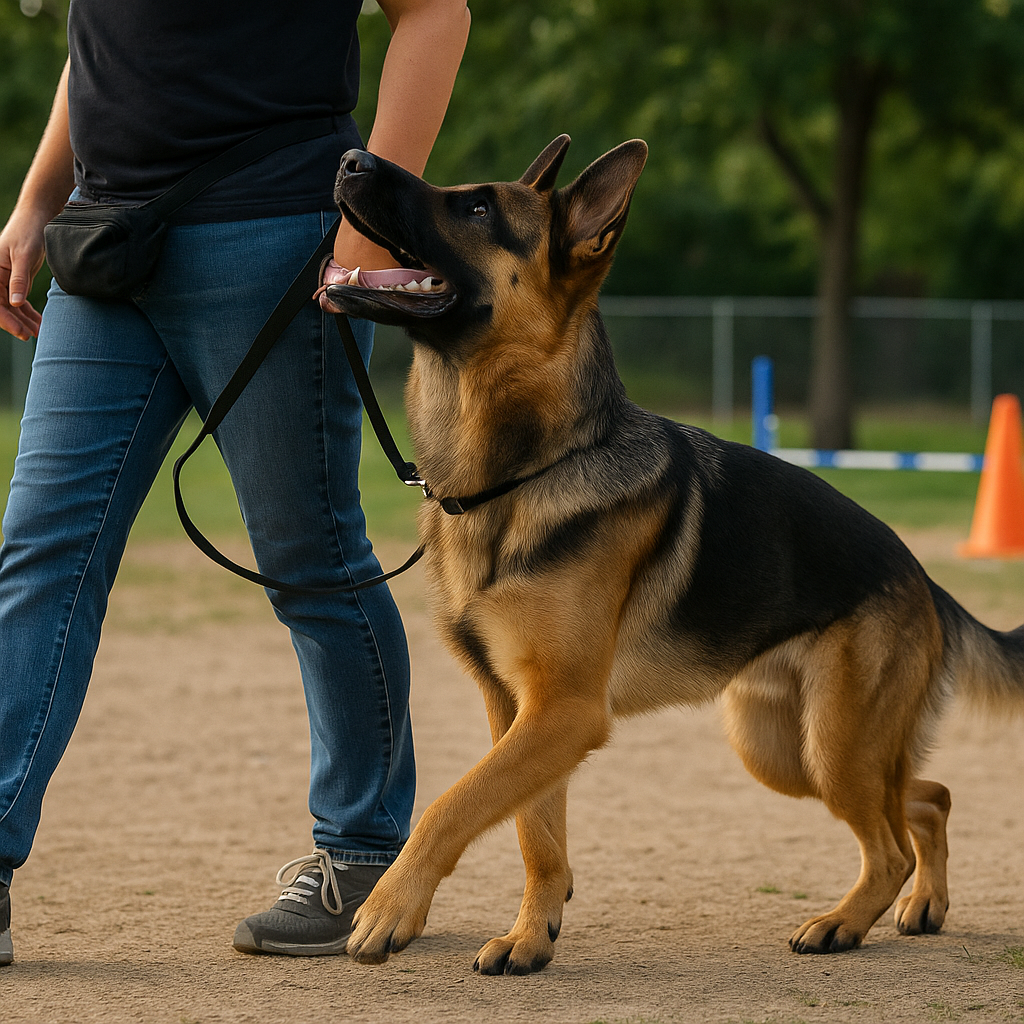The Guardian Breeds: Understanding the Protective Nature of the German Shepherd and Rottweiler
Share
The German Shepherd and the Rottweiler are two of the most recognizable and respected breeds in the world. With their powerful presence and history of service, they command attention. But beyond their formidable appearance lies a deep loyalty and a natural instinct to protect their family. Owning a guardian breed can be an incredibly rewarding experience, but it comes with a profound responsibility. Understanding their nature is the first step to raising a confident, well-adjusted, and trustworthy companion.

What Defines a "Guardian Breed"?
A true guardian breed is more than just a living alarm system. While a small "watchdog" might bark at every passerby, a guardian dog is more discerning. Their instinct is rooted in intelligence, loyalty, and a deep bond with their pack—their human family. They possess a calm confidence and the ability to assess situations, distinguishing between a friendly guest and a genuine threat. This isn't simple aggression; it's a dedicated, protective nature that requires careful nurturing and guidance from a responsible owner.
The German Shepherd: The Versatile Protector
Originally bred for herding sheep in Germany, the German Shepherd's intelligence, trainability, and courage quickly made it the world's leading police, military, and service dog. They are renowned for their unwavering loyalty and eagerness to work alongside their handler.
- Temperament: A well-bred German Shepherd is confident, courageous, and highly intelligent. They are eager to please and form a strong bond with their family, but can be aloof with strangers.
- Need for a Job: This is not a breed content to be a couch potato. A German Shepherd needs a purpose. This "job" channels their immense energy and intelligence, preventing boredom and destructive behaviors. Activities like advanced obedience, scent work, or protection sports are excellent outlets.
The Rottweiler: The Calm and Confident Guardian
Descending from the mastiff-type dogs of Roman legions, the Rottweiler was developed in Germany to drive cattle and guard money for traveling butchers. This history shaped a breed that is calm, confident, and immensely powerful, with a loving heart reserved for its family.
- Temperament: The Rottweiler is a study in contrasts: a loving, even goofy, companion with its family, yet a serious and self-assured guardian when necessary. They are naturally observant and tend to be reserved with new people until they accept them.
-
Powerful Presence: Their quiet confidence is often enough to deter any threat. They are not typically a reactive breed but are always aware of their surroundings, ready to step up and protect their loved ones.

The Cornerstones of Responsible Ownership
For these powerful breeds, ownership is a commitment to leadership and education. The difference between a trusted family member and a liability lies in three key pillars of responsible ownership.
1. Early and Continuous Socialization
Socialization is arguably the most critical aspect of raising a guardian breed. It's the process of teaching your dog that the world is a safe place full of normal sights and sounds. A well-socialized dog learns to be neutral in new situations—from the mail carrier arriving to children playing nearby—and can more easily identify a true anomaly that requires their attention. This prevents fear-based reactivity and builds a stable, confident temperament.
2. Consistent, Positive Reinforcement Training
Guardian breeds are highly intelligent and need a leader they can respect. Training should start from day one and be a lifelong activity. It's not about dominance, but about clear communication and building a partnership. Positive reinforcement methods work wonderfully to teach commands and behaviors, while firm, fair, and consistent boundaries teach them the rules of the household. A well-trained guardian dog looks to its owner for cues, which is essential for control in any situation.
3. Giving Them a Job to Do
A bored German Shepherd or Rottweiler is a recipe for trouble. Their active minds and athletic bodies need an outlet. Providing a "job" satisfies their innate drive to work and prevents anxiety, frustration, and destructive habits. This doesn't have to be formal police work; it can be daily structured training, puzzle toys, learning new tricks, participating in dog sports like agility or nose work, or even just carrying a doggy backpack on hikes. A tired dog with a fulfilled mind is a happy dog.
Conclusion: A Noble Companion for the Right Home
In the hands of a dedicated, knowledgeable, and responsible owner, the German Shepherd and the Rottweiler are among the most loyal, loving, and capable companions a person could ask for. They are not the right choice for a novice owner or a family unprepared for the commitment they require. But for those who are willing to invest the time in training, socialization, and providing purpose, these magnificent guardian breeds will repay the effort a thousand times over with unwavering devotion and protection.
